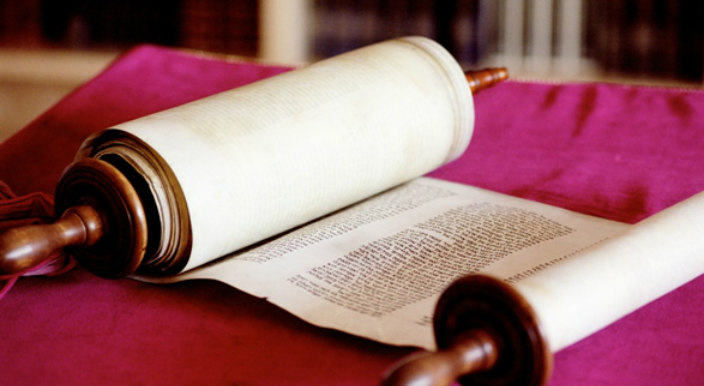
In Proverbs 31, a chapter of our Bible known as Eshet Chayil, a Woman of Valor, we read:
She opens her mouth with wisdom, and the teaching of kindness is on her tongue.
We benefit and learn from her wisdom[1].
Throughout our sacred texts, we meet wise women who point the way, such as Deborah the Prophet[2], Rahab the Canaanite[3], the Wise Woman of Tekoa[4], and more.
Perhaps there are wise women in your life — mothers, grandmothers, aunts, relatives, ancestors, or friends — who have guided you in some way, large or small, on your journey. This week, as I begin my new role as Executive Director of Women of Reform Judaism, I am grateful to the wise leaders who have come before me in WRJ’s 110-year history.
In this week’s Torah portion, Parashat Pinchas, we reencounter one of our tradition’s wisest women, Serah bat Asher. She is first introduced much earlier in our Torah cycle, among the list of Israelites, the children and grandchildren of our ancestor Jacob, who initially went down to Egypt:
These are the names of the Israelites, Jacob and his descendants, who came to Egypt…. Asher’s sons: Imnah, Ishvah, Ishvi, and Beriah, and their sister Serah[5].
Notably, Serah returns to the scene in this week’s Torah reading, many years later, among those counted in the census of the Israelites who are about to conclude their wanderings in the desert and enter the land of Israel, several hundred years and many generations later:
The descendants of Asher by their clans: Of Imnah, the clan of the Imnites; of Ishvi, the clan of the Ishvites; of Beriah, the clan of the Beriites. Of the descendants of Beriah: Of Heber, the clan of the Heberites; of Malchiel, the clan of the Malchielites. The name of Asher’s daughter was Serah. These are the clans of Asher’s descendants[6].
As Dr. Tamar Kadari explains, “Aside from [these two references, Serah] takes no part in any narrative, nor is anything said about her. In contrast, a plethora of midrashic [interpretive] traditions exist about this woman, and thus, the faceless Biblical character becomes a fascinating personality. Her history is intertwined with the story of the migration to Egypt and enslavement and with redemption and the return to Erez Israel. She lived to an extremely old age and accordingly was blessed with much earthly wisdom and knowledge…[7]"
Serah’s longevity and mysterious identity have delighted the imaginations of our ancestors. Our rabbis told stories about her role in letting Jacob know that his son, Joseph, was actually alive[8]; in helping Moses find Joseph’s bones before the Exodus from Egypt[9]; and in assisting David’s military commander, Joab[10]. She is even described as someone believed to have “entered the Garden of Eden alive” as someone who possibly lives forever[11].
In each of these stories, Serah is characterized primarily by her wisdom. She knows the information that others need at the right moment. Serah’s wisdom comes both from her knowledge and her own personal experience. A story is told about Serah entering the rabbinic house of study. One of the rabbis, Yochanan, was sitting and explaining what the sea looked like when it parted:
Rabbi Yochanan explicated that it was like latticework. Serah bat Asher looked out and said, it wasn’t like that – it was like a glass window[12].
Not like a latticework, as Rabbi Yochanan pictured it, but like a glass window, Serah teaches us. A latticework, while aesthetically beautiful, impairs and fragments our view. Through a latticework, one can only see pieces of the full picture. However, Serah, with her generational wisdom, invites us to look through a glass window, wide open with potential and possibility.
Interestingly, Serah shares this week’s Torah portion with five incredible women who are also quite wise. In this same Torah reading, we read about the daughters of Zelophehad — Noa, Mahlah, Hoglah, Tirzah, and Milcah — who successfully petition God and Moses to change the laws of inheritance when their father dies without leaving a male heir[13].
While no midrash or story that I am familiar with describes it, their proximity in this week’s Torah portion invites us to imagine Serah bat Asher offering her wisdom to these daughters of Zelophehad and future generations of women leaders.
I look forward to learning from the wisdom of WRJ leaders, past and present. Let us heed Serah’s invitation to view the world through a glass window. The future is wide open, ours to imagine and create together.
[1] Proverbs 31; translation from L’chol Z’man V’eit, CCAR Press
[2] Judges 4-5
[3] Joshua 2
[4] 2 Samuel 14
[5] Genesis 46
[6] Numbers 26:44-47
[8] Sefer HaYashar
[9] Sotah 13a and elsewhere
[10] Rashi on 2 Samuel 20
[11] Tractate Derech Eretz Zuta and elsewhere
[12] Pesikta D’Rav Kahana
[13] Numbers 27
Related Posts

Continuing to Educate and Empower People Together

My Challah-Making Experience


.jpg)